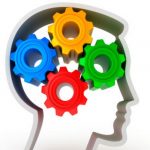A number of different symptoms of MS can lead to falls including weakness, contractures and sensory disturbance, but balance is commonly affected in people with MS and contributes significantly to falls risk.
Over the last few years there have been a number of studies reported internationally in which video games have been used in rehabilitation to improve balance in people with MS. Among these the Nintendo Wii® Balance Board system has been commonly tested and showed positive effects.
In this latest study, published in the journal Radiology, Italian researchers have shown that Wii balance board training induces structural changes in the brain that correlate with clinical improvements in balance.
27 people with MS were divided into two groups to undertake either 12 weeks of training using the balance board followed by a 12 week period with no training, or a 12 week period with no training followed by the 12 week balance training course. Measurements of balance and MRI scans were taken at the beginning of the 24 week period, at the 12 week cross-over point and at the end of 24 weeks.
A specialised MRI scanning technique was used that allowed the researchers to visualise the integrity of the bundles of nerve fibres that connect different parts of the brain (white matter tracts).
Despite relatively small numbers of participants in the trial, the researchers were able to show that immediately after the training period, the structure of the white matter tracts in the cerebellum – the area of the brain that controls balance and coordination of motor activities – were significantly changed. These changes correlated with the clinical improvements in postural balance observed following the training period.
The authors suggested that the changes in white matter structure observed indicated that white matter was remodelled and repaired in response to the training.
These changes did not persist, however, once training was stopped, suggesting that ongoing balance training may be needed to see any lasting benefits.
The authors conclude that home-based, task-oriented visual feedback exercises can improve balance via structural changes to the brain, but larger studies are need to confirm these findings and investigate the long-term effects of training.
MS Research Australia is supporting a number of studies designed to improve balance and reduce falls in people with MS including the use of shoe insoles to improve sensory feedback, a computerised balance training program together with transcranial magnetic brain stimulation and an interactive exercise training program.
For information on balance rehabilitation and falls prevention interventions that are currently available, please contact your state MS society.






